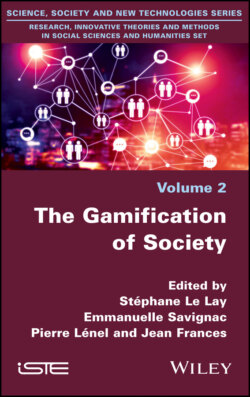Читать книгу The Gamification of Society - Группа авторов - Страница 17
1.8. Counter-example of flow or optimal experience
ОглавлениеTo think differently about these questions, I propose a detour through the question of optimal experience, a concept far more solid than gamification. Csikszentmihalyi constructed the notion (flow, optimal experience) from the game, from an analysis of its characteristics (Csikszentmihalyi and Bennett 1971). For Csikszentmihalyi the game appears as:
A socially or individually structured form to constitute the experience of the flow. It is a framework, a device through which you can have this experience that is voluntary, self-directed and detached from “real life”. (Csikszentmihalyi 1979, p. 268)
He thus considers that the game allows for a particular experience, that of flow (see Brougère 2005 for a more in-depth presentation of the concept), which is not true for all games and all players. In fact, he discovers in the game an experience that he will investigate its existence in other human activities. He is careful not to find play everywhere, but rather a type of experience that can be developed elsewhere, in leisure (which has points in common with play) and in work (Nakamura and Csikszentmihalyi 2002). Transforming an activity so that it can become an optimal experience and carrying out analyzes in this sense have two advantages over the process of gamification, which sometimes refers to the same questions: to distinguish play from the experience it can generate or, more broadly, not to consider that what can produce this type of experience is necessarily play, not to see play everywhere; to approach the question in terms of experience, since devices are of interest only in so far as they generate an experience. The problem of gamification is to believe that play is in all the game elements (and of video games in particular) and to limit the question to that of devices without taking into account the experiences produced (beyond the question of motivation). Are there players in a so-called “gamified” world?
